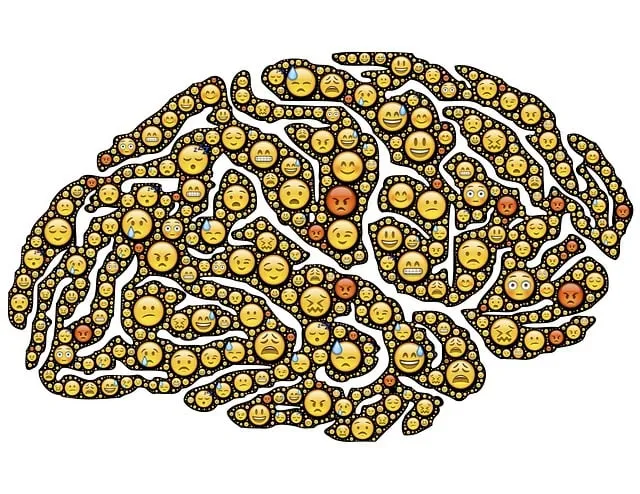Kaiser Permanente in Wheat Ridge is tackling mental illness stigma through multi-faceted initiatives, including Mental Wellness Coaching Programs and healthcare provider education. By normalizing conversations around mental health, they aim to improve access to services and reduce the barrier to seeking help. Their success is measured via data-driven KPIs focusing on public perception shifts, service accessibility, employment rates, and discrimination reduction, aligning with risk management planning and crisis intervention guidance.
Mental illness stigma reduction is a critical component of fostering inclusive communities. This article explores comprehensive strategies to combat stigma, using Kaiser Permanente’s initiatives in Wheat Ridge as a model. We delve into understanding the profound impact of mental health stigma and its barriers. Through community engagement and education, we examine successful efforts that have improved access to mental health services. Additionally, we discuss measuring the effectiveness of these initiatives, highlighting Kaiser Permanente’s leading role in this area with a focus on the Wheat Ridge community.
- Understanding the Impact of Stigma: Why Reduction is Crucial
- Kaiser Permanente's Approach: A Comprehensive Strategy for Wheat Ridge and Beyond
- Community Engagement: Breaking Down Barriers through Education
- Measuring Success: Evaluating the Effectiveness of Stigma Reduction Initiatives
Understanding the Impact of Stigma: Why Reduction is Crucial

Stigma surrounding mental illness can have profound and detrimental effects on individuals’ lives, hindering their ability to seek help and access essential resources. The Kaiser Permanente mental health number in Wheat Ridge serves as a symbol of hope for many, offering a confidential line for support and guidance. However, without reducing the stigma, this vital service might go unseen or unutilized by those who need it most.
Mental wellness coaching programs and burnout prevention strategies for healthcare providers are gaining recognition as effective tools to combat stigma. By educating both professionals and the general public, we can foster a more empathetic and supportive environment. Moreover, integrating risk management planning for mental health professionals into standard practices ensures that providers have the necessary resources and safeguards to offer quality care without fear of judgment or repercussions. These collective efforts are crucial in normalizing conversations about mental health, ultimately leading to better outcomes for those facing these challenges.
Kaiser Permanente's Approach: A Comprehensive Strategy for Wheat Ridge and Beyond

Kaiser Permanente has adopted a comprehensive strategy to reduce stigma associated with mental illness, starting in Wheat Ridge and aiming to create a more supportive environment for those seeking mental health services. The approach involves multiple interconnected initiatives. One key element is the development of Mental Wellness Coaching Programs designed to empower individuals with coping strategies and enhance their overall mental wellness. These programs cater to diverse populations, ensuring that everyone has access to tailored support.
Additionally, Kaiser Permanente prioritizes Healthcare Provider Cultural Competency Training to equip staff with the knowledge and skills necessary to address mental health concerns sensitively and effectively. By fostering an environment where healthcare providers understand the nuances of mental illness and its impact on different communities, they can better serve patients. This holistic strategy not only reduces stigma but also encourages individuals to seek help without hesitation, ultimately improving access to essential mental health services in Wheat Ridge and beyond.
Community Engagement: Breaking Down Barriers through Education

Community engagement plays a pivotal role in reducing the stigma surrounding mental illness. By fostering open conversations and sharing accurate information, barriers can be broken down, leading to increased understanding and support for those facing mental health challenges. Kaiser Permanente’s mental health number in Wheat Ridge serves as a crucial resource, providing easy access to expert guidance and care coordination. This accessibility is enhanced through community outreach programs that offer educational opportunities tailored to diverse audiences.
Mental Wellness Coaching Programs Development and Mental Wellness Journaling Exercise Guidance are effective tools used during these engagements. They empower individuals with practical strategies for managing mental wellness while promoting self-awareness and resilience. Through such initiatives, communities can create an environment where mental illness is normalized, reducing the stigma that often prevents people from seeking help.
Measuring Success: Evaluating the Effectiveness of Stigma Reduction Initiatives

Measuring success is a critical aspect of evaluating the effectiveness of stigma reduction initiatives. Organizations like Kaiser Permanente in Wheat Ridge have been at the forefront of these efforts, utilizing data-driven approaches to assess the impact of their programs. By tracking key performance indicators (KPIs), such as changes in public perception and behavioral shifts towards mental health support, they can gauge the success of their campaigns. This involves surveying communities, collecting feedback from both individuals affected by mental illness and healthcare professionals, and analyzing trends over time.
The evaluation process goes beyond simple satisfaction surveys. It incorporates metrics related to improved access to mental health services, increased employment rates for those with mental illnesses, and reduced instances of discrimination in various settings. In line with their Risk Management Planning for Mental Health Professionals and Crisis Intervention Guidance, Kaiser Permanente’s initiatives focus on holistic improvement. This includes not only Mood Management strategies but also fostering a culture where conversations about mental health are normalized, breaking down barriers that have historically impeded individuals from seeking help.
Stigma reduction efforts, as demonstrated by Kaiser Permanente’s comprehensive strategy in Wheat Ridge and beyond, play a pivotal role in fostering understanding and support for mental health issues. Through community engagement and education, we can break down barriers and create an environment where individuals facing mental health challenges feel empowered to seek help without fear of judgment. By measuring the effectiveness of these initiatives, we ensure that our efforts are making a tangible difference, ultimately leading to improved access to care and enhanced well-being for all.






